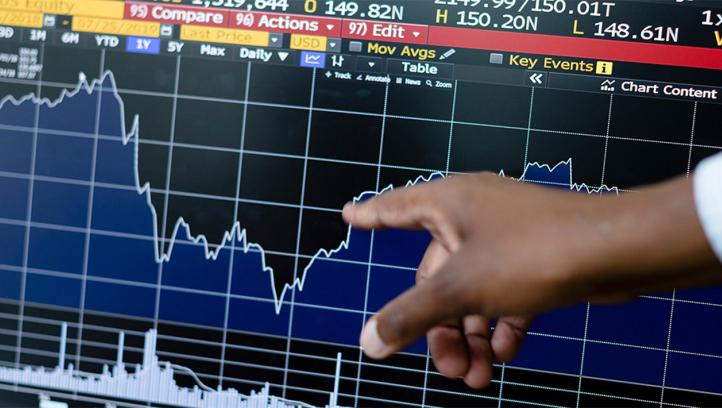
Four Ways Leaders Can Stay Balanced

Written by Gretchen Oltman, JD, PhD, and Vicki Bautista, EdD, NBC-HWC
Some days it seems like the world has completely spun out of control. Today, we find ourselves in the middle of a global health pandemic, working remotely and managing a stress load that we have never experienced before. Even the healthiest of us can find these times challenging. Routines are uprooted, plans are erased from calendars and access to all that we find ‘normal’ is seemingly nonexistent.
For today’s successful leaders, now more than ever, personal well-being is a critical need, not only for the person leading, but for the team members within organizations. While there is not a universal definition for well-being, there is a consensus that, at minimum, well-being includes the presence of positive emotions and moods, the absence of negative emotions, satisfaction with life and feeling healthy and full of energy.
We know that employees look to leaders to model the workplace culture – oftentimes employees will mimic the work pace, routine and structure of the organization. Leaders who work long hours will find employees doing the same. Leaders who eat take out at their desk over the lunch hour might see similar traits in the offices and cubicles nearby. On the flip side, leaders who regularly dedicate a portion of their day to mindfulness practices or physical activity may be positively influencing their employees to engage in their own well-being activities. Bottom line – when left to our own devices, we look around and start to do what others are doing.
But how does a great leader model personal well-being when working from a distance? How is the new normal cultivated? When, in this new daily routine, can an effective leader model and promote well-being? How can a good leader help his or her employees make wellness a priority in a completely new and unpredictable environment? Here’s our advice:
- Connect Daily: Model communication skills by reaching out to coworkers and employees is a critical (and time consuming) facet of leadership. However, it is one of the primary ways your colleagues feel valued and important during times of uncertainty, layoffs and organizational stress. Avoid saying things like “we are doing business as usual” - this tends to minimize the fact that in reality, nothing is functioning as usual. Dedicate at least 10% of your day to connecting in live time with your colleagues and employees. Start with “How can I help?”
- Take “10” Hourly: If we consider how teachers in schools manage their students’ attention, we recognize there is a limit on how much active focus one’s brain can handle. Many schools set up learning in 50-minute blocks of time – allotting those last 10 minutes in the hour to getting up out of the desk, moving around, stretching, and socializing. We can use the same model in our home office. Set an alarm to remind yourself to get up from your chair, take a walk and refill your water bottle. Have employees share how they are taking “10” when you connect with them.
- Make time for Mental Health: Acknowledge that mental health is part of well-being: A rather frank 2019 article from Forbes indicated that employees working at home are not only isolated from work routines and structures, but are also geographically isolated and often struggle to find boundaries between work and personal responsibilities. When working remotely, it can feel like you are on call 24/7. Failing to proactively shut down one’s work life can lead to challenging mental stress. Shared in that same Forbes article, Dr. Amy Cirbus, a mental health expert from TalkSpace stated, “Research indicates that both exercise and connecting with others, even in short bursts, produces endorphins that boost mood, increase creativity and esteem, and decrease anxiety.” Not only are our coworkers and employees facing a different workload, they are also facing different mental health challenges. Those who struggled with anxiety or depression within their regular routine at the office may struggle in completely new and unique ways. As such, we need to be aware of our own mental well-being as well as our colleagues. Check in to determine how others are managing the anxiety, stress, depression and other feelings that arise from the new work environment.
- Reflect: During ‘normal’ organizational operations, leaders who reflect on their actions, inactions, intentions, motivations and reactions are impactful and find greater meaning in their work. Embracing this practice from a distance in our new workplace reality can be both inspiring and isolating, yet it is crucial for one’s well-being during turbulent times. Reflecting with a group of people around a conference room table can build collaborative spirits and comradery, while reflecting within one’s personal space can be spiritual and humane. Find a non-working space that allows you to reflect daily. Think about what is going on in the world, what your impact can be, how you can connect better with others, what you value in times like these and who you can turn to in times of uncertainty. Ideally, get out of your house and engage in physical activity – some fresh air and scenery can invoke calmness and inspire creative processes.
Maintaining purposeful, engaged leadership qualities while also balancing life in a world spinning out of control is grounded in your personal leadership style and approach to well-being. That is, without a mentally sharp, physically strong and emotionally resilient leader, organizations will struggle – meaning, most importantly, employee’s, coworkers, and fellow leaders will react in a manner consistent with the actions you are demonstrating. By building strong routines that focus on your well-being during a time of crisis, you not only model that for others, you can strengthen your overall organization.
This blog post was authored by Gretchen Oltman, JD, PhD, and Vicki Bautista, EdD, NBC-HWC. Dr. Oltman is an assistant professor in the department of Interdisciplinary Studies at Creighton University. She specializes in leadership studies and Organizational Leadership. Her teaching philosophy supports personal accountability and one’s drive for new knowledge. She seeks to understand how a student’s personal and professional path can be enhanced or strengthened through graduate education. Vicki Bautista is an assistant professor in the department of Interdisciplinary Studies. She serves as a faculty member and the Assistant Program Director for the online Master of Science in Integrative Health and Wellness. Additionally, she teaches both on-campus and online courses in the bachelor's-level Healthy Lifestyle Management program, as well as professional development courses, including Educators Can’t Pour from An Empty Cup: Creating a Self-care Plan. Bautista has an EdD in Interdisciplinary Leadership and is a Board-Certified Health & Wellness Coach.




